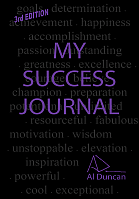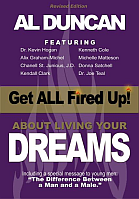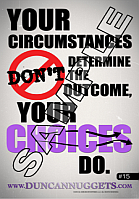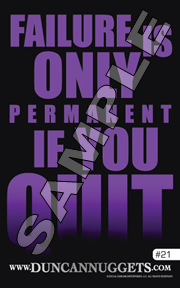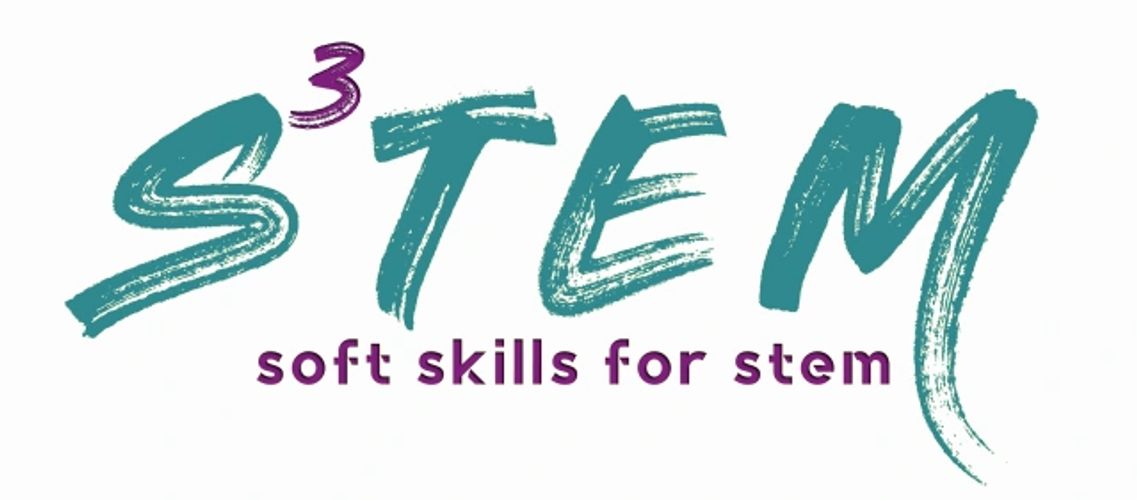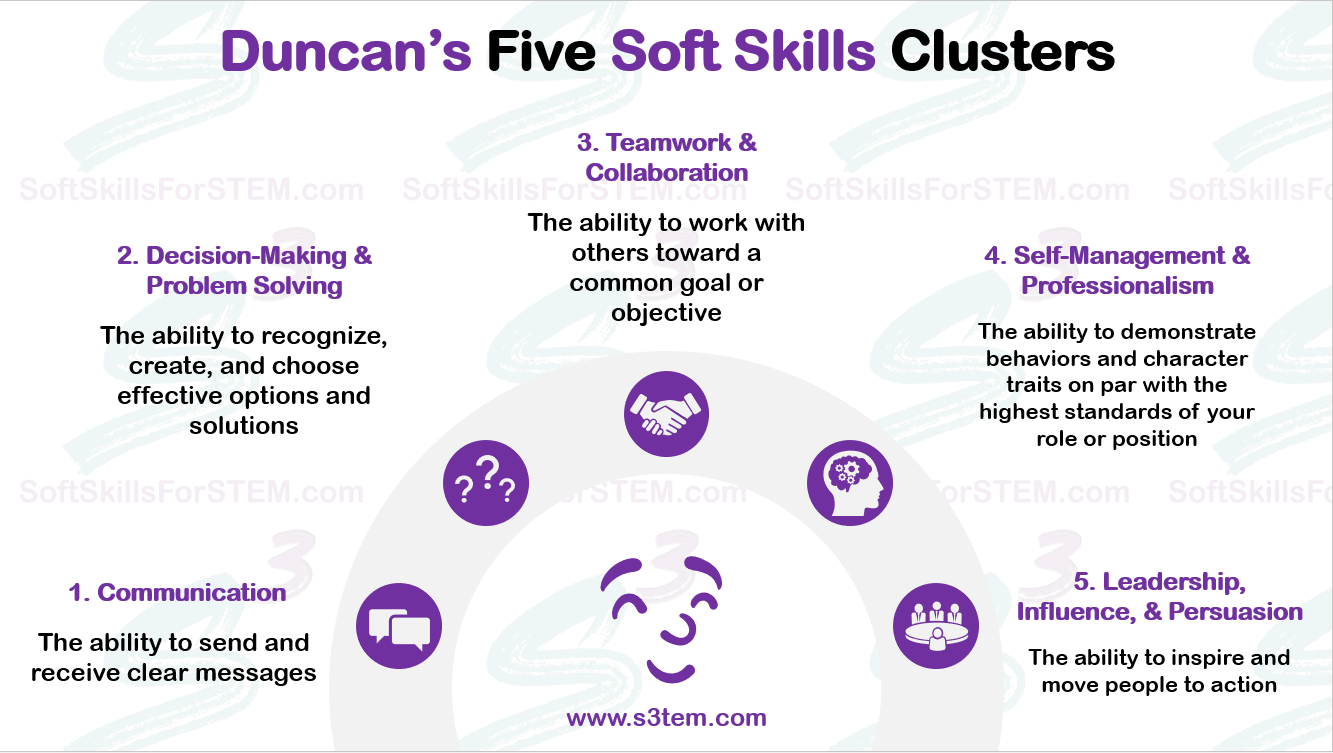[VIDEO] Duncan Nugget #346: Overcome Cognitive Bias
In 1945, psychologist Karl Duncker gave research subjects a candle, a book of matches, and a box of tacks. He asked them to stick the candle to a wall so that when lit, wax wouldn’t drip on the floor.
What would your solution be?
The simple solution is to remove the tacks from the box, stand the candle in the box, and then tack the box to the wall. See what I mean? Simple.
But most people didn’t get it because they had a type of cognitive bias about what the box was for—holding tacks. They didn’t see the box for all that it could be. Think about that.
The ability to overcome cognitive bias gives you a competitive advantage because you’ll expand your perception of yourself and others. You’ll find better ways to maximize your skills and resources.
Million-Dollar Question:
What are you doing to expand your perception and overcome cognitive bias?
Interview Question: What Did You Do When You…?
What did you do when you…?
This behavior-based interview question is a variation of the “tell me about a time when…” You could be asked this type of question during an interview for college, grad school, an internship, or a job. Here’s the key to giving a solid answer.
Tell a story and be specific.
Seriously. Be specific.
A vague answer to this type of question will cost you a lot of points. In order to ell a story that focuses on your strengths and provides relevant you might want to use the STAR method. Check out this article to get some great tips on how to use the STAR method and tell compelling stories.
More examples of this type question:
What did you do when you…?
1. Did your best but things still didn’t turn out right.
2. Had to work with a difficult person.
3. Failed to complete a project on time.
4. Had too much to do and not enough time to do it.
5. Had to come up with a creative solution to a tough problem.
6. Were frustrated at school or work.
7. Had to deal with a difficult customer.
8. Fell short of your boss’s (or teacher’s) expectations.
9. Were managing or leading a group of people and had to keep them motivated.
10. Easily accomplished a task and exceeded everyone’s expectations.
4 Questions To Ask Yourself
Who do you plan to be?
What do you plan to do?
What do you plan to have?
Million-Dollar Question:
What do you plan to give?
- Topics: 3. BROWSE BY TOPICSArticlesCareer DevelopmentGoals & ProductivityGrit, Perseverance, DiligencePersonal DevelopmentProfessionalTeenYoung Adult
[ACTIVITY] 7 Soft Skills CEOs Work On

While I was doing research for The Soft Skills Success Plan, I spoke to quite a few chief executive officers and other executives. I found it interesting that the soft skills they wanted in their employees were often the same soft skills in which the CEOs wanted or were receiving coaching for themselves.
But just because that’s what I found from a few dozen interviews, it doesn’t mean this trend is universal. Fortunately, I came across the 2013 Executive Coaching Survey administered by Stanford University and the Miles Group. The results were similar to my interviews, but they were more accurate and more data was available.
- Topics: ActivitiesArticlesCareer DevelopmentConflict ManagementLeadership SkillsProfessionalSoft SkillsYoung Adult
5 College Interview Questions You Could Be Asked

In most cases college interviews are not mandatory. They are, however, highly recommended because they can give you a competitive advantage. A great interview could be the difference between acceptance and rejection.
Before I give you 5 questions your interviewer could ask you, let me answer a question that you may have.
Q & A: What Is Your Take On Professional Resume Writing Services?
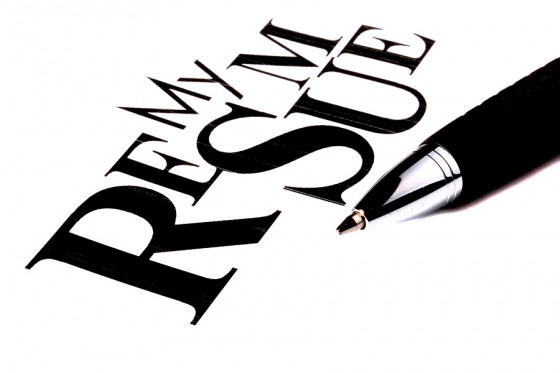 Q: Hi Mr. Duncan, I wanted to know your take on professional resume writing services. Do you feel that it has a higher chance of impressing or do you think if one had the main key points, their resume would be just as good? I was curious and just wanted your advice on the subject. Thanks. —Z. Brandford
Q: Hi Mr. Duncan, I wanted to know your take on professional resume writing services. Do you feel that it has a higher chance of impressing or do you think if one had the main key points, their resume would be just as good? I was curious and just wanted your advice on the subject. Thanks. —Z. Brandford
When it comes to resume writing services, I’ve heard great stories and horror stories. So, in a nutshell, a did-it-myself resume can be just as effective as one written by a professional IF you know what you are doing.
[VIDEO] Duncan Nugget #36: Individuals and Issues
Whether it’s parents fussing at children, students complaining about teachers, co-workers arguing, or couples fighting, conflicts often end with a stack of hurt feelings and enraged people.
If you really want to resolve the conflict, it’s not cool to say things like: “You idiot! How stupid can you be?!”
But what if he really is an idiot?
I feel your pain but, even if you’re dealing with a genuine idiot, those types of statements actually make things worse because they are value judgments about the individual.
When resolving conflicts, focus on the issue, not the individual; the problem, not the person.
Think about it. It’s easier to resolve the issue or problem, when you avoid making value judgments about a person. Instead, focus on the aspects of the issue you want to resolve.
Million-Dollar Question:
When dealing with conflict,
do you focus on the individual or the issue?
- Topics: Career DevelopmentConflict ManagementDuncan NuggetsProfessionalSoft SkillsTeenVideosYoung Adult
